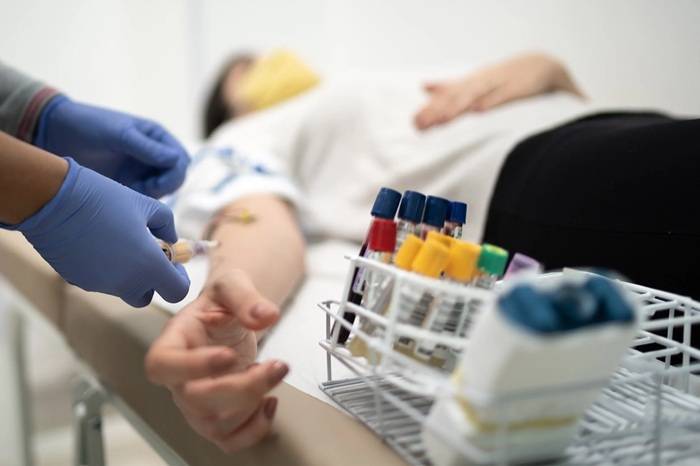
Am I Having a Heart Attack? Female Quiz and Guide to Knowing Symptoms, Risk, and Prevention
No woman patient ever thinks that she is experiencing a heart attack because her symptoms may be far different from what she would notice in men, for which it is succeeded by chest-clamping agony. Women will experience silent or unobtrusive symptoms and assume it to be stress, flu, or anxiety.
This guide will allow you to read through and quiz yourself on a special quiz, determine what to look out for in the way of symptoms, list risk factors most likely related to women, and give you an approximate idea of what you need to do next, what the tests will demand of you, and how to take care of your heart in the long term.
Take the Female Heart Attack Risk Quiz

It is not a medical examination but will help you come to a judgment as to whether your symptoms are going to need pushing on urgently or not. If you’ve recently been unwell or had an odd combination of symptoms, perform this self-test.
Place a 0 to 3 (0 = not at all, 3 = very bad) in front of each of the following symptoms. Then add up your score:
- Very or very poorly tired
- Shortness of breath with or without chest pain
- Feeling of tightness or pain in the chest
- Back, neck, shoulder, or jaw pain
- Dizziness or lightheadedness or sudden attacks of fainting
- Clammy, sweaty skin, or cold sweats
- Indigestion or nausea
- Palpitations or a rapid heart beat
- Feeling something awful is going to happen or worry or fear
Count your risk factors from the list below. Each one is 1.
- 55 and older
- Family history of coronary heart disease
- High blood pressure
- High cholesterol
- Diabetes or pre-diabetes
- Overweight or obesity
- Current or former smoker
- Physical inactivity
- History of gestational diabetes or preeclampsia
- Early menopause (premature, before age 50)
- Chronic depression, stress, or anxiety
What Your Score Might Mean
- Symptom score 10 or more and several risk factors: Go see your doctor immediately
- Symptom score 6 to 9 and several risk factors: Call, visit, or talk with your doctor or go to an urgent care
- Symptom score of 5 or less with more than one risk factor: Refer for cardiac check-up
- No symptoms and minimal risk factors: Ongoing prevention and education
Why Women’s Heart Attack Symptoms Are So Easily Misdiagnosed
Women’s symptoms are not as dramatic and as movie-like as the Hollywood heart attack. Fewer than half of women ever experience that chest constricting or tightness, however. Women have a cluster of symptoms with no, at least on the surface, relation to their heart, like fatigue, shortness of breath, anxiety, jaw or back pain, and nausea.
This is a delayed diagnosis. Women will dismiss symptoms as indigestion, stress, or age. Trigonometry of your body and of your stomach is life and death.
Number One Heart Attack Symptoms in Women
- Severe weakness
- Shortness of breath
- Discomfort or pain in jaw or upper back
- Squeezing or pressure in center of chest
- Sudden anxiety
- Lots of cold sweat for no reason
- Dizziness
- Nausea with vomiting or without vomiting
What to Do If You Suspect a Heart Attack
Call an emergency number if you believe that you are experiencing a heart attack. Do not try to drive yourself to the hospital. If it is safe, take an aspirin (325mg if no allergy) and then get out of your vehicle and leave the door open for emergency services and sit down and stay calm.
Report your symptoms to the 911 operator right away. Request to be a male or report jaw ache or shortness of breath. These will activate response teams to move quicker and bring equipment.
Result of the Diagnostic Process
Gastric and pulmonary lavage will be the initial procedure that will be administered in the hospital emergency ward. Medical physicians will start conducting tests right away in succession.
- Electrocardiogram (ECG or EKG) to measure the electrical activity of your heart
- Blood tests for cardiac enzymes like troponin that rise during a heart attack
- Chest X-ray to rule out other causes of pain
- Echocardiogram to visualize heart function
- Cardiac catheterization or angiogram if blockage is suspected
- CT or MRI if other causes (like clots) are possible
These help confirm whether you’re having a heart attack, and what kind.
Common Types of Heart Attacks in Women
- STEMI (ST-elevation myocardial infarction): Blockage of the artery that leads to a heart attack. Must be treated immediately.
- NSTEMI (Non-ST-elevation myocardial infarction): Tiny or teeny heart attack. But a whopper nonetheless.
- SCAD (Spontaneous coronary artery dissection): Acute rupture of the coronary artery lining. It is most common in young women.
- Silent heart attack: Does not appear to have happened at first. But it is revealed only later after investigations.
NSTEMI and SCAD-pattern myocardial infarctions occur more commonly in women.
Why You Shouldn’t Dawdle
Each woman dawdles. Because she doesn’t want to be an inconvenience. She is preoccupied caring for someone, or thinks that her symptoms aren’t bad enough. But time won’t wait for any woman.
Curving dawdling can kill your heart permanently or kill you. The very last thing that you would ever want to do is wait and see.
Emotional Symptoms and Misdiagnosis
Because women approach the physician with affective, subjective complaints. Like worry, fatigue, or distress, besides physical ones. Their heart attack will most resemble a panic attack, indigestion, or fatigue. Don’t hesitate to be assertive in hospital waiting rooms and doctors’ offices. Reiterate the entire litany of your symptoms. Say to the doctor pointedly, “I am concerned this is a heart attack.”
The Need to Know Your Numbers
- Blood pressure
- Fasting blood sugar or A1C
- Total cholesterol, HDL, LDL, and triglycerides
- Body mass index (BMI)
- Resting heart rate
- Family history
Having them checked will draw your physician’s eye to your risk and enable preventive treatment.
Most Important Changes in Your Life
- Quit smoking cold turkey.
- Exercise: 30 minutes, 5 days a week.
- Diet: eating heart-healthy, one way to think of it is mediterranean-style eating.
- Decrease stress through meditation, journaling, yoga, or counseling.
- Sleep well: 7 to 8 hours at night.
- Control blood pressure, cholesterol, and blood sugar.
- Drink in moderation.
These are easy habits and lowered first and recurrent heart attack risk by a large degree.
Special Circumstances in Young Women
Special Considerations for Young Women

Young women under the age of 50 years will and do suffer heart attacks if diabetic, smoker, or oral contraceptive user with other risk factors. PCOS, autoimmune disease, or migraines with aura have added cardiovascular risk.
Preeclampsia or diabetes during pregnancy increases lifetime risk of heart disease years down the road.
When to Seek a Second Opinion
When your “nothing” symptoms worsen, change, or persist, let a cardiologist, preferably a women’s heart disease expert, take a peek.
Request additional tests:
- Request stress test, echocardiogram, or coronary calcium scan
- Request family history and symptoms despite normal blood pressure or cholesterol
- Take symptom diary with you
Mental Health Matters Too
Depression, anxiety, and stress can increase the likelihood of heart disease and recovery from a heart attack. If you are emotionally spent. Then discuss it with a health care provider or counselor. Heart care is not just body care of the heart but also taking care of your emotional heart.
Also Read: When Calls the Heart Season 11
Recovery and Rehabilitation after Heart Attack
You will most likely be put into a cardiac rehabilitation program that can include:
- Exercise in a supervised environment
- Diet counseling
- Stress reduction
- Medication therapy
- Peer group guidance or peer counseling
It is not being alive and making it through the second cardiac episode, and it is one of the most serious ones.
Medicines You May Be Taking
- Aspirin or thinners to avoid clots
- Statins to lower cholesterol
- Beta-blockers to slow heart rate and lower demand
- ACE inhibitors or ARBs to lower blood pressure and help the heart.
- SGLT2 inhibitors or GLP-1 agonists if you have diabetes
Always know what you are taking each drug for and why you are on it. Never stop heart medications without talking to your health care provider.
Support Systems for Women
- Online support groups (Go Red for Women)
- Hospital-based support groups locally
- Cardiac rehabilitation programs specifically for women
- Lifestyle counseling or nutrition counseling
- Medication, blood pressure, or symptom-tracking apps
You are not alone. There are millions of women who’ve had heart attacks and lived happily and well past them.
If you find yourself wondering that I am having a heart attack then don’t guess. Use this quiz as your guide, then also listen to your instincts. Call emergency services, try to call out for someone, and do whatever else you have to do to look after your health.
Your heart is the flame of your life. Cherish it, feed it, and honor it, most particularly when it doesn’t feel right. Recognize the warning signs. Familiarize yourself with your numbers. Act swiftly. Because to delay can be costly in hours and days, it can be as costly as your life.



